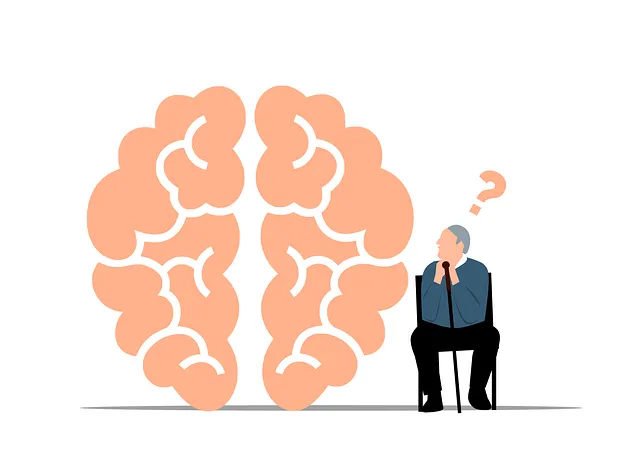In today's diverse healthcare landscape, especially in areas like Highlands Ranch, cultural competency is vital for providing quality care. Organizations like Kaiser prioritize training their mental health professionals in conflict resolution, risk assessment, and stress management to navigate cultural differences effectively. This enables them to build trust, address sensitive issues related to race, religion, gender, and sexual orientation, enhancing patient outcomes and satisfaction. Kaiser Highlands Ranch's commitment to therapist training through comprehensive programs emphasizes empathy, resilience, and stigma reduction, ensuring culturally competent care tailored to diverse patient backgrounds. Interactive workshops, case studies, role-playing, and reflection help overcome challenges in engagement and translation of knowledge into practice, ultimately justifying the reputation of good therapists at this location.
Cultural competency training in healthcare is more than a buzzword; it’s a critical component of modern medical practice. As healthcare becomes increasingly diverse, understanding and respecting patient backgrounds, beliefs, and preferences are essential for quality care. This article explores this concept, focusing on the impact of training on provider performance, particularly highlighting Kaiser’s approach in Highlands Ranch. We’ll delve into the benefits for patients and strategies to overcome challenges in implementing effective cultural competency programs, with a specific interest in how Kaiser’s model translates to its therapists.
- Understanding Cultural Competency in Healthcare: A Necessity in Modern Practice
- The Role of Training: Equipping Providers for Diverse Patient Populations
- Kaiser's Approach to Therapist Training: A Closer Look at Highlands Ranch
- Benefits of Culturally Competent Care: Enhancing Patient Outcomes and Experience
- Challenges and Solutions: Overcoming Barriers to Effective Training Implementation
Understanding Cultural Competency in Healthcare: A Necessity in Modern Practice

In today’s diverse healthcare landscape, cultural competency is no longer an option but a necessity. Understanding and respecting various cultures, ethnicities, and backgrounds are essential to providing quality care, especially in regions like Highlands Ranch where Kaiser has established itself as a trusted provider with good therapists. The ability to navigate cultural differences can significantly impact patient outcomes, satisfaction, and trust in healthcare services.
Cultural competency involves training mental health professionals in conflict resolution techniques, risk assessment, and stress management workshops. This enables them to effectively communicate, build rapport, and address the unique needs of each patient. By fostering an inclusive environment, healthcare organizations like Kaiser can ensure their staff is equipped to handle sensitive issues related to race, religion, gender, and sexual orientation, ultimately enhancing the overall patient experience.
The Role of Training: Equipping Providers for Diverse Patient Populations

Healthcare provider cultural competency training plays a pivotal role in equipping them to serve diverse patient populations effectively. In today’s multicultural society, patients come from various ethnic backgrounds, religions, and socio-economic statuses, each with unique healthcare needs and preferences. Training programs, such as those offered by organizations like Kaiser in Highlands Ranch, focus on enhancing providers’ social skills, cultivating compassion, and developing empathy building strategies. These initiatives ensure that medical professionals can communicate sensitively, understand cultural nuances, and deliver personalized care to all patients, regardless of their background.
By incorporating Social Skills Training, Compassion Cultivation Practices, and Empathy Building Strategies into their curricula, healthcare provider training programs foster an environment where diversity is celebrated and understood. This not only improves patient satisfaction but also leads to better health outcomes. For instance, when therapists in Highlands Ranch are trained to recognize and respect cultural differences, they can build stronger relationships with patients, encouraging open communication and adherence to treatment plans. Such comprehensive training ultimately contributes to a more inclusive healthcare system that meets the diverse needs of its community.
Kaiser's Approach to Therapist Training: A Closer Look at Highlands Ranch

Kaiser’s commitment to therapist training in Highlands Ranch is a testament to their dedication in fostering strong, culturally competent mental health professionals. The organization places significant emphasis on developing therapists who can build empathy and connect with diverse patient populations effectively. Through comprehensive programs, Kaiser teaches strategies for resilience building and mental illness stigma reduction efforts, ensuring that therapists are equipped to navigate complex cultural landscapes.
Highlands Ranch’s therapist training program highlights Kaiser’s innovative approach, focusing not only on clinical skills but also on interpersonal dynamics. By integrating empathy-building techniques into their curriculum, the facility empowers therapists to create safe spaces for patients from various backgrounds. This holistic training reflects Kaiser’s understanding of the intricate relationship between cultural sensitivity and effective mental health care, ultimately contributing to better patient outcomes and stronger communities.
Benefits of Culturally Competent Care: Enhancing Patient Outcomes and Experience

Culturally competent care has become a cornerstone in modern healthcare, significantly enhancing patient outcomes and experiences. When healthcare providers are trained to understand and appreciate diverse cultural backgrounds, they can offer more personalized and effective treatment. This is particularly relevant for areas like Highlands Ranch, where a varied community coexists, including those seeking services from reputable organizations like Kaiser. Patients benefit from increased trust and comfort, leading to improved adherence to treatment plans.
A culturally competent approach allows therapists and healthcare staff to use tailored communication strategies (e.g., those offered through Community Outreach Program Implementations) to bridge cultural gaps. This ensures that patients feel heard and respected, fostering a collaborative environment. Moreover, such training can help in managing sensitive issues related to stress reduction methods, which may vary across cultures. By embracing these practices, healthcare providers not only improve patient satisfaction but also create an inclusive setting, encouraging open dialogue about health and wellness concerns.
Challenges and Solutions: Overcoming Barriers to Effective Training Implementation

Implementing effective cultural competency training within healthcare organizations, such as Kaiser in Highlands Ranch, presents several challenges. One significant barrier is ensuring that all therapists and staff members stay engaged throughout the process, especially when dealing with complex topics related to diverse communities’ unique needs and experiences. To overcome this, interactive workshops, case studies, and role-playing exercises can be employed to foster active participation. These methods not only make training more dynamic but also help professionals apply Mind Over Matter Principles to develop coping skills and inner strength, enabling them to better serve diverse patient populations.
Another challenge lies in translating theoretical knowledge into practical actions. Training should go beyond surface-level awareness by encouraging professionals to reflect on their biases and personal experiences. By creating a safe space for open dialogue, utilizing resources like cultural competency checklists, and providing ongoing support through mentorship programs, healthcare providers can bridge the gap between learning and implementation. This comprehensive approach ensures that therapists at Kaiser Highlands Ranch are equipped with the tools needed to deliver culturally sensitive care, ultimately improving patient outcomes and satisfaction.
Healthcare provider cultural competency training is no longer a luxury but an imperative. As patient populations become increasingly diverse, ensuring culturally competent care is crucial for enhancing patient outcomes and experiences. The case study of Kaiser’s therapist training program in Highlands Ranch demonstrates effective strategies for equipping providers to serve these diverse communities. By addressing challenges and implementing robust training programs, healthcare organizations like Kaiser can foster a more inclusive and effective healthcare system, where all patients feel understood and valued. In doing so, they not only improve individual lives but also contribute to a stronger, healthier society.






